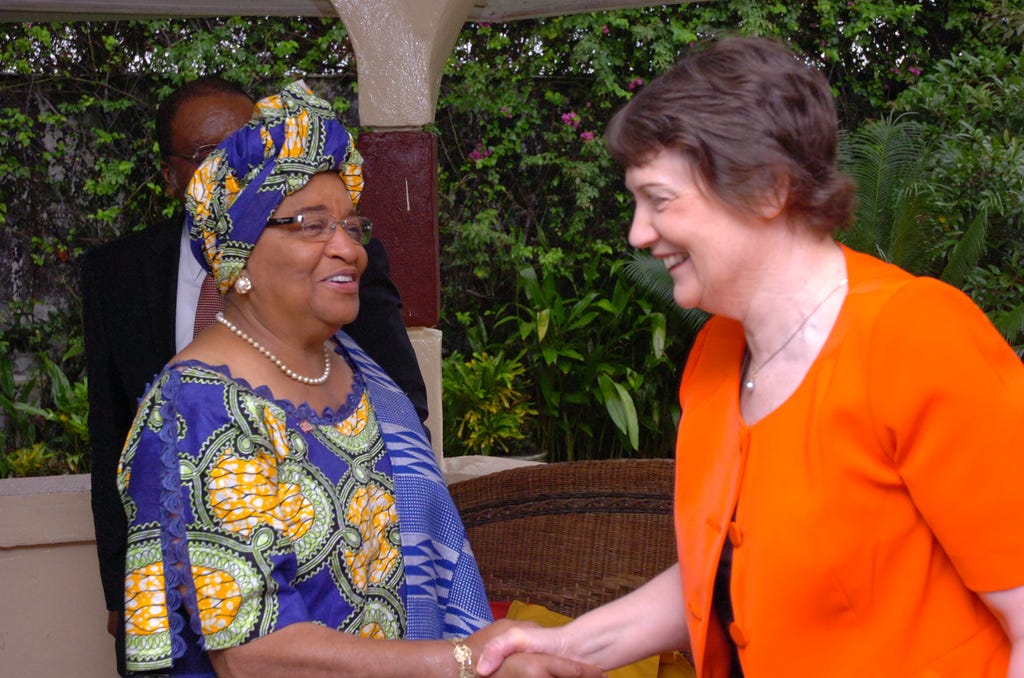Daily Multilateralism
Tuesday, January 19, 2021
A high-level independent panel has issued a new progress report on the international response to the pandemic. Chaired by two former heads of government, Liberia’s Ellen Johnson Sirleaf and New Zealand’s Helen Clark, the group aims to “provide an evidence-based path for the future, grounded in lessons of the present and the past, to ensure countries and global institutions, including specifically WHO, effectively address health threats.” The report is an interim one but several conclusions are clear. First, the panel believes that the WHO is too weak to do its assigned job:
The Panel is struck that the power of WHO to validate reports of disease outbreaks for their pandemic potential and to be able to deploy support and containment resources to local areas is gravely limited. The incentives for cooperation are too weak to ensure the effective engagement of States with the international system in a disciplined, transparent, accountable and timely manner.
The panel also appears convinced that a variety of actors—including the Chinese government—could have done more to respond in the pandemic’s early days. “[P]ublic health measures could have been applied more forcefully by local and national authorities in China in January,” it notes. The experts also wonder whether a WHO decision to use the term “pandemic” earlier on might have more effectively communicated alarm to the international community.
Britain is scheduled to host the G7 summit this summer, and its government has invited Australia, India, and South Korea to participate. Guest invitations are not unusual for such summits, but these are getting scrutiny because of Boris Johnson’s expressed desire to establish a “D-10”—a grouping of leading democratic countries. Could these countries be the three that would eventually turn the G7 into the D10? Alberto Nardelli and Isabel Reynolds report that there is nervousness within the exclusive club about any possible renovations:
The U.K. has also assured members it has no plans to propose changes to the G7 format and that it will remain distinct from the wider group of democracies, according to three diplomats familiar with the matter. That hasn’t fully assuaged G7 members’ concerns.
One of the diplomats said while there is no immediate prospect of extending the group, once institutionalized, the D-10 could compete with the G-7 for relevance. Another said the U.K. must consult closely with G7 members about its plans for the D-10 coalition.
In an interview with the Financial Times, outgoing U.S. trade representative Robert Lighthizer doubled down on U.S. opposition to the appointment of Ngozi Okonjo-Iweala as director general of the World Trade Organization:
“We need a person who actually knows trade, not somebody from the World Bank who does development,” said Mr Lighthizer, referring to Ms Okonjo-Iweala’s credentials. “We need a trade person with real trade experience,” he added. “And there are very few areas where you would say, ‘here’s an organisation in very bad shape, let’s get someone who knows nothing about its core mission’.” The US has previously said in statements only that it supports South Korea’s Yoo Myung-hee, the other remaining candidate for the job, calling her a “bona fide trade expert”.
President-elect Biden has nominated Congressional trade official Katherine Tai to replace Lighthizer as trade representative, but the Biden team has not yet made public its view of the WTO leadership question.
El Pais has published a profile of Carlos Castresana, the Spanish candidate to serve as the next prosecutor of the International Criminal Court. In his comments, Castresana sounded a cautious note and expressed concern, in particular, about overreach by the court:
Castresana believes…that steps must be taken to attract some of the powers that remain outside the ICC’s reach. “We must avoid opening investigations in territories where jurisdiction is not clearly established, because that is a boomerang that ultimately has counterproductive effects. But at the same time, we must be very efficient in those territories and with regard to people over whom we do have jurisdiction.”
Briefly noted:
An interview with Abebe Selassie, director of the International Monetary Fund’s Africa department.
The UN Security Council has condemned attacks on peacekeepers in Mali and the Central African Republic.
Iran is reportedly interested in forming an “Axis of Resistance.”
The European Commission is urging EU member states to step up the pace of vaccinations.
Nigeria has requested ten million vaccine doses from the African Union.
Estonia looks back on its first year as a Security Council member.


